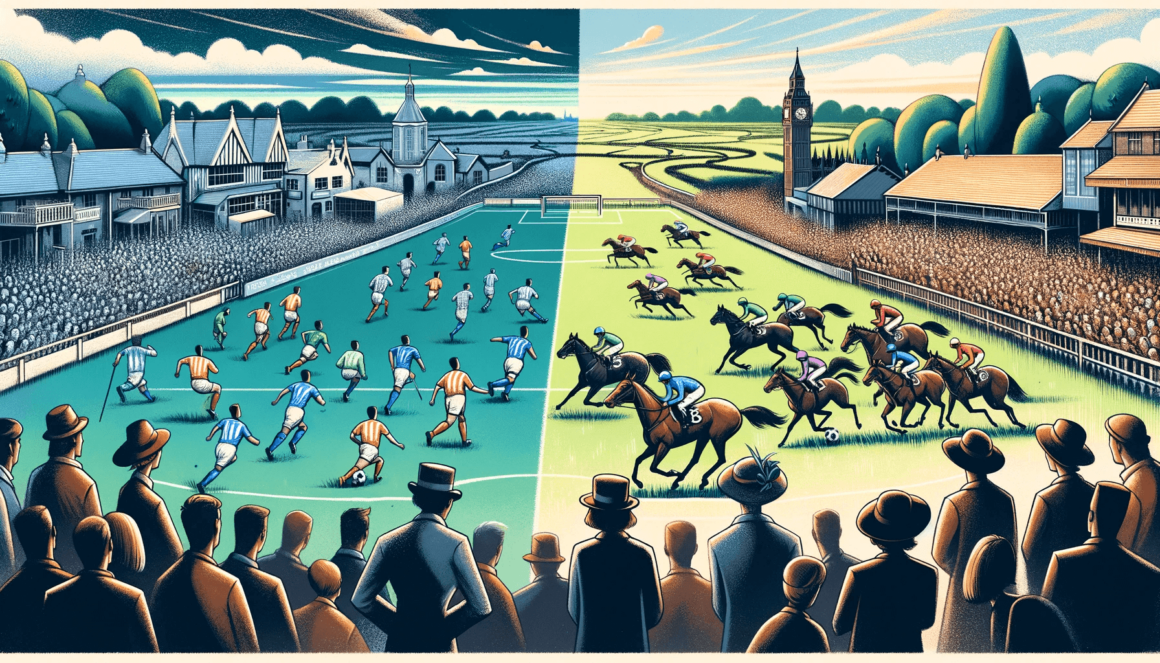Soccer History: What Is a Derby?
You’ve probably heard this word being used in the context of a soccer match, but do you actually know the answer to the question: “What is a derby”?
Derby is a term that is often used in sports, especially soccer. This article will explore the meaning behind the term and discuss its history. We will also mention some of the most famous derbies in the world.
Where Did the Word Originate?

The soccer term “derby” holds a long-standing tradition in sports. Just how long, though? That’s something that can be disputed. In this part of our article, we will discuss the origins of the word derby and its definition.
One theory connects the term with a form of “medieval football” played on Shrove Tuesday and Ash Wednesday as early as the 12th century. The Royal Shrovetide Match was played in Ashbourne, located in the English county of Derbyshire.
This was a form of “mob football,” a match where a crowd would gather to participate in a game more like rugby than modern soccer. The matches were held without many rules and regulations, and the participants could propel the ball with either hand or foot towards the opposition’s goal.
The competition involved two rivaling parts of town, which is one more reason that the word “derby” is attributed to the annual Shrovetide match in Ashbourne.
It would make sense that the name derby in football came from an older form of the game, a match also called “Two Towns,” exemplifying the rivalries of modern sports. However, the true origins of the term seem to be somewhat different.
The word derby first came about in the 18th century. It was used to describe a race between two groups of horses organized by the 12th Earl of Derby. The term soon became popular in other sports, such as boxing and cricket. In the 19th century, with the invention of modern soccer rules, derby began to be used in reference to soccer matches.
Today, the term “local derby” means a soccer match between two rivals from the same town or region, and Derby is used to signify a horse race.
So, What Is a Soccer Derby?
It is a match between two local rivals characterized by intense competition and legendary rivalry from both sides. If you have the opportunity to witness one, it is an experience you will never forget!
Derby games are typically characterized by a high level of competitiveness and passionate support from the crowd. Fans of rival teams dislike each other intensely, and there is often a lot of trash talking leading up to the match. Derby games are also usually played in front of packed stadiums with a lively atmosphere.
The main characteristic that differentiates a derby from any other match is the level of passion and hatred between the fans. This is often perpetuated by years of history and a tradition of epic, close-fought battles. Derby games are well-known for their electric atmosphere.
What Were the First Derbies?
It comes as no surprise that England had football derbies before anyone else. Many are still active rivalries today, although some have lost their status as derbies since the clubs are no longer in direct competition.
Here’s an interesting soccer fact for you: it all began when the first set of rules for the game was published by the Sheffield Football Club back in 1858. The first ever derby was played between Hallam F.C. and Sheffield F.C. in December of 1860.
The match that took place on the 20th January 1883 between Wolverhampton Wanderers and West Bromwich Albion became a long-standing tradition known as the Black Country Derby, whose most recent match was played on 3rd May 2021.
Another great rivalry that spans centuries is the Old Firm derby between Celtic F.C. and Rangers F.C., played in Glasgow, Scotland. The two teams played over 400 matches in a highly charged contest that often goes beyond the frame of sports rivalry.
We talk about the greatest football derbies in a separate article, but we’ll mention a couple in the next section.
Is Every Great Rivalry a “Derby”?
Not every match between fierce rivals is a football derby. Although there could be a lot of historical clashes between two clubs and a unique atmosphere present every time they play – not every great rivalry is a derby. For example, the El Clasico, a match between FC Barcelona and Real Madrid, is technically not a derby because they are not local rivals.
When Real Madrid plays Atletico Madrid, that is a local Madrid derby and probably one of the fiercest local rivalries in Europe. When Barcelona plays Espanol, that is also considered a derby because both teams hail from the region of Catalonia. That said, this match is not nearly as contentious as the rivalry that the clubs from Madrid share.
Bottom Line
In this article, we tried to find the origin of the word “derby” and to answer what derby in soccer is. For those who love the sport, nothing beats this atmosphere of two local rivals facing off against each other against a backdrop of a packed stadium full of enthusiastic fans.
Soccer is known for its competitive spirit and devoted fans. But there is never so much at stake for those fans as when their team is playing their fierce rivals in a local derby.
FAQ
Is El Clasico a derby?
Matches between FC Barcelona and Real Madrid are always filled with excitement. Although it is a great rivalry it isn’t strictly speaking a derby because the two clubs come from different regions of Spain.
What makes something a derby?
A derby in football is a match between two local rivals with a long-standing history. The term can be used to describe any competitive fixture between two clubs but is most commonly used in reference to games played in the same city or region.
Derbies are often characterized by intense rivalries and a passionate atmosphere, with supporters eager to see their team come out on top. After all, what is a derby worth if the atmosphere isn’t electric?
Why is it called the derby?
There is a theory that states that the name derby came after an annual “mob football” match held in the English county of Derbyshire. However, it is more likely called after the 12th Earl of Derby, who organized horse races with 3-year-old thoroughbreds, and later the term spread to mean local rivalry in other sports like boxing, cricket, and football.
 BC.Game
BC.Game  7Bit
7Bit  Ducky Luck
Ducky Luck  Red Dog
Red Dog